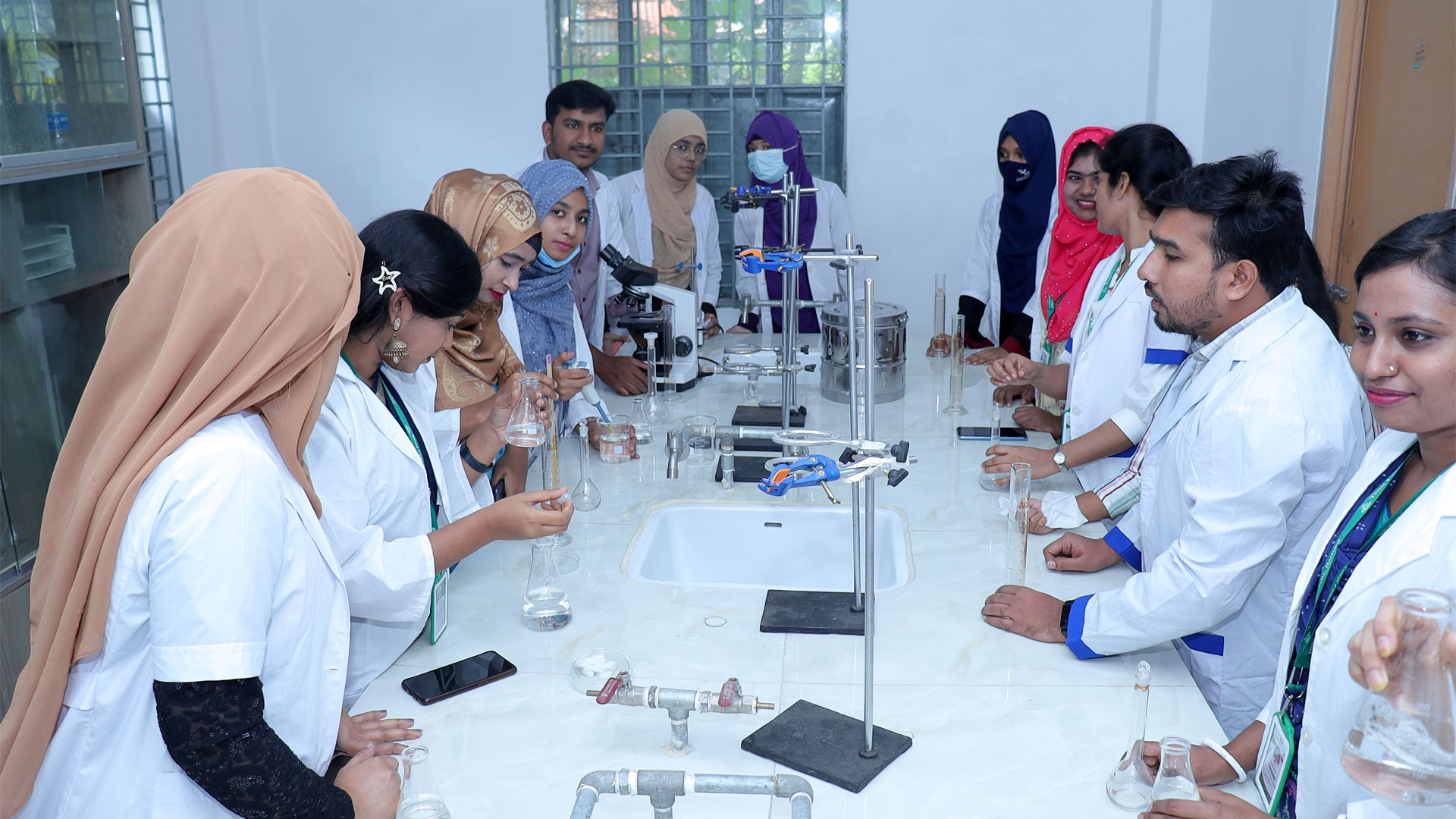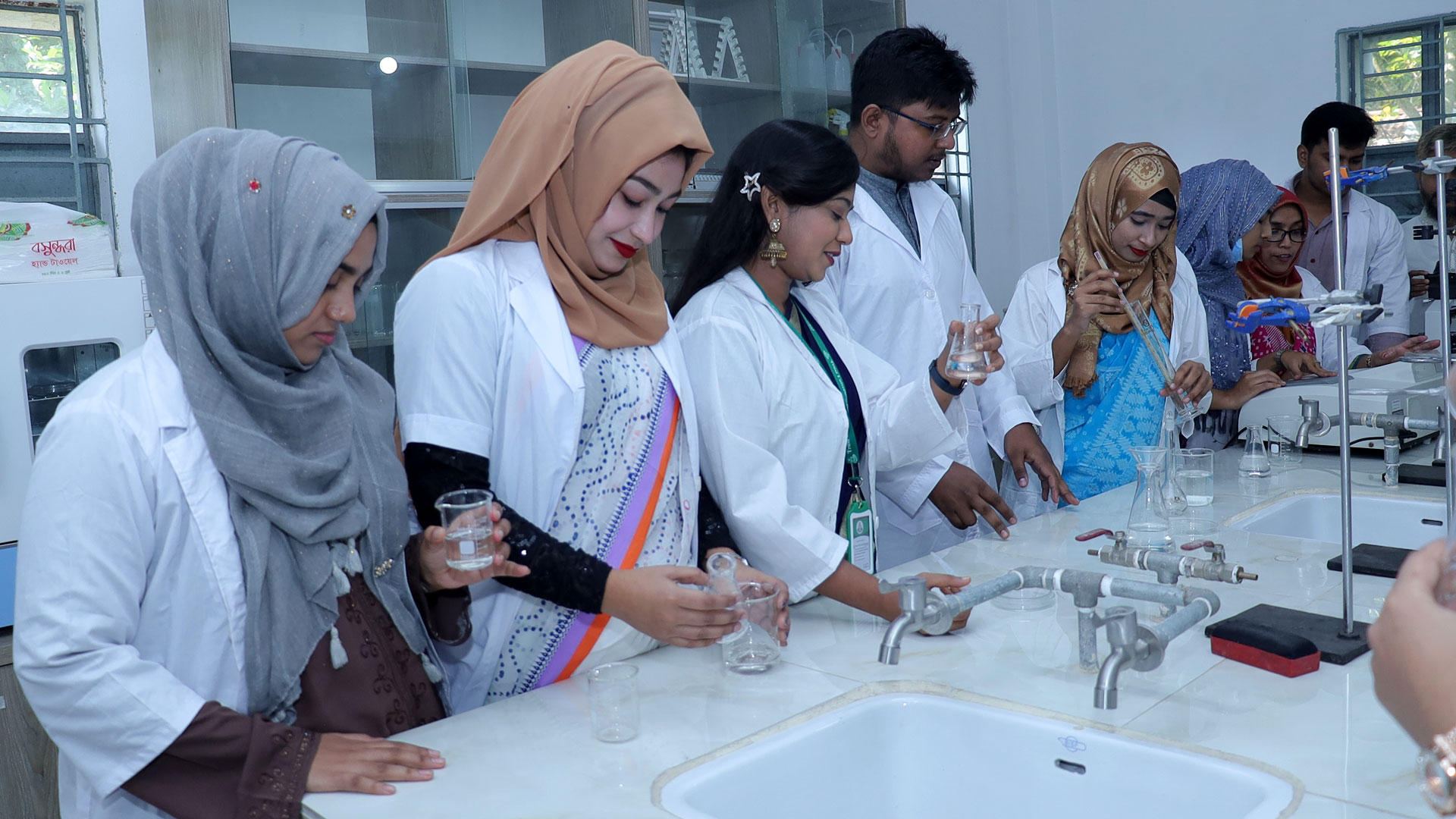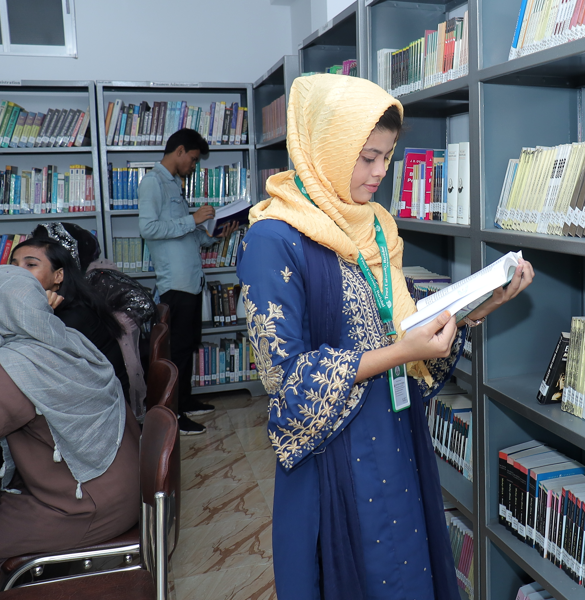Department of Biochemistry and Molecular Biology
Vision
The Department of Biochemistry and Molecular Biology, Trust University aims to be a center of excellence for teaching-learning and research where fundamental change is brought about in students, the university and the environment and in the way we understand life at the molecular level.
Mission
- To ensure board knowledge in basic concepts and principles of Biochemistry and Molecular Biology.
- To focus the complete understanding of life at the cellular and subcellular levels.
- To Discovers and transfers new knowledge regarding the molecular basis of life through basic biomolecular science research and cross-disciplinary research.
- To recognize the local and global issues and search the promising strategies and biochemical approaches in problem solving methods.
- To house interdisciplinary collaborative research to generate and to disseminate new knowledge in the area of molecular biology, immunology, neuroscience, clinical biology, bioinformatics, and plant Biology.
- To make a group of motivational expert students in the field of Biochemistry and Molecular Biology to meet the era’s world-wide demands
- To educate students in the theory and practice of biochemistry and molecular biology.
Philosophy and Objectives
Philosophy: The university is more of a “learning institution” than a mere “teaching institution”. Its focus is more on gaining knowledge than mere skills. The faculty are individuals who are deep researchers qualified to write and critique contemporary textbooks in the area they reach; obviously they do not teach to a “fixed syllabus”. The faculty are highly qualified and deep researchers; and therefore, they “design” the courses taking into account current trends and the student background so as to blend what is collectively taught across different courses into a cohesive body of knowledge that prepares the students not just for today but to take on the developments that are likely to take place years ahead. The lectures are supplemented by several laboratory sessions, tutorials, self-reading (both individually and in groups), and projects. It is not sufficient to pick up what is taught in the class or written in the textbooks; it is important to understand, assimilate and demonstrate the individual and collective ability to apply the knowledge to a research/application environment.
Objectives: By the end of the course, students should be able to-
- demonstrate knowledge and critical understanding of the molecular machinery found in the living cells
- gain knowledge and understanding of the principles that govern the structures of macromolecules and their participation in molecular recognition
- use knowledge and understanding about the principles and basic mechanisms of metabolic control and molecular signalling
- use basic laboratory skills and apparatus to obtain reproducible data from biochemical experiments
- implement experimental protocols, and adapt them to plan and carry out simple investigations
- recognize, analyse, interpret, and participate in reporting to their peers on the results of their laboratory experiments
- keep knowledge about safety in the laboratory, and
- learn waste management to protect environmental pollution
- evaluate investigations from primary scientific literature
LEARNING OUTCOMES:
- Efficient students will able to demonstrate knowledge based on the theory and practice of modern Biochemistry and Molecular Biology.
- Students will design 3D-structures and analyse the mechanisms of nucleic acids and proteins.
- In the laboratory, students will act appropriately and use secure laboratory practices.
- Be able to critically evaluate data and design experiments to test hypotheses relevant to the practice of Biochemistry and Molecular Biology
- Students will read and assess primary literature in the discipline.
- Be able to evaluate the scientific data either their own or data of others
- Graduating students will carry out scientific investigations and develop ideas using different formats suitable for different target audiences.
- Be able to use databases, computational tools and other online resources effectively
- Students will demonstrate awareness of ethical issues in the practice of science.
- Students may be able to prevent environmental contaminations by employing waste management practice.


